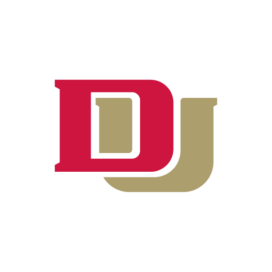Master’s Concentration
Supply Chain Management
In the Supply Chain Management concentration, learn to build the organizational planning and structures needed to optimize the flow of products along their full journey from raw material sourcing to manufacturing, transportation, and inventory management. Through hands-on projects using the newest technology, you’ll learn to manage the wide range of organizational issues that impact product flow, all while learning from current leaders in the field.
Looking to build more in-depth knowledge about supply chain? See our MS in Supply Chain Management.
Let us help you succeed.
*Indicates a required field.
Top-ranked, career-focused education in a flexible format.
At a Glance
Classes Begin
March 31
Term Length
10 Weeks
Master's Tuition
$835 per credit hour

Top-Ranked University by U.S. News & World Report

Connect with an Advisor
Brian Cicero
Text Me at 303-900-0375
Email Me
Call Me
Schedule an Appointment
Skills You’ll Learn
Optimize an organization’s structure, people, and processes for product flow
Manage processes with the latest technology
Curriculum
5
Core Courses
4
Concentration
Courses
3
Elective Courses
Featured Instructors
Sample Schedule
Plan out your schedule and determine your preferred timeline for completing your master's degree—finish in as few as 18 months or take up to five years.
Interested in a graduate certificate?
Explore our four and six course graduate certificates in Organizational Leadership.
Take a Course Before You Apply
Career Outcomes
Predicted outcomes for graduates of Supply Chain Management
Job Titles
Supply Chain Manager Salary: National Average
$89,067
(Glassdoor)
Get Ahead with Career Services
One-on-one career coaching and mock interviews
Job database dedicated to DU students and alumni
Résumé and cover letter guidance
Hear from Our Students
Theme: Job Satisfaction
Organizational Leadership
Flexible Online Classes
We understand the demands of balancing work, friends and family, and school can be challenging. That's why at University College, you can complete your program entirely online. Our online learning platform makes it easy to work anywhere at any time.
Accreditation
Higher Learning Commission
University College programs maintain the highest level of accreditation offered by The Higher Learning Commission, one of the regional accrediting bodies recognized by the federal government. The University of Denver and all of its academic programs are regionally accredited by this commission, and regional accreditation is the highest standard for universities in the United States.
Take the Next Step








